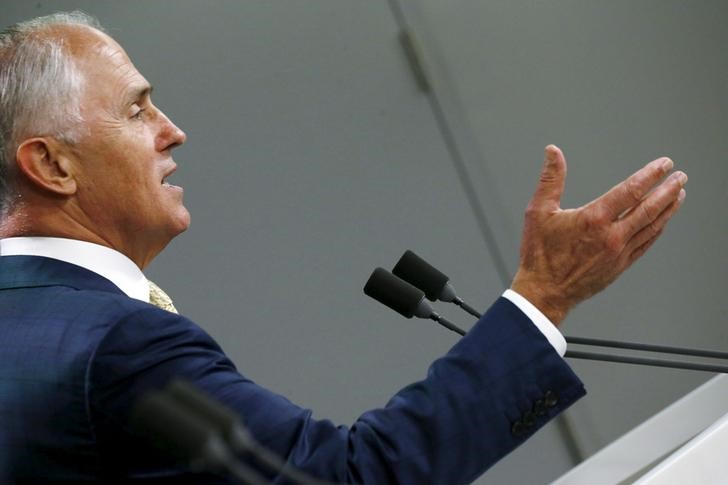Street Calls of the Week
By Colin Packham
SYDNEY, April 24 (Reuters) - Australian Prime Minister Malcolm Turnbull has recorded a rise in voter support just days after tightening rules for foreigners seeking work and citizenship under an "Australia first" policy, a newspaper poll showed on Monday.
Turnbull has struggled to stop a haemorrhage of voter support with far right parties including Pauline Hanson's One Nation on the rise and with his conservative government lagging behind opposition Labor in opinion polls.
The next election is not due until 2019, but continued poor polling could undermine Turnbull's leadership.
Tightening immigration and citizenship rules last week under the banner "Australia first", similar to U.S. President Donald Trump's "America first", boosted Turnbull's personal rating four percent from early April, said a Newspoll by The Australian newspaper, the highest in nearly two months. support for the government rose one percent on a two-party preferred basis - where votes for minor parties are redistributed to the two main blocs - Turnbull's government still trails Labor by a margin of 52-48, the poll showed.
Turnbull's move towards more conservative politics may have won some support, but his position as leader remains on a knife-edge with poor polling a trigger for leadership spills in Australian politics.
"Although the poll offers some support for Turnbull's hopes of keeping his job, he has to arrest the clear movement away in support since the election last year and show that he can keep hold of it," said Haydon Manning, a political science professor at Flinders University in South Australia state.
Last week, Turnbull abolished a temporary work visa popular with foreigners, replacing it with a new programme, in a move critics described as political posturing. also announced plans to raise the bar for handing out citizenships by lengthening the waiting period, adding a new "Australian values" test and raising the standard for English language. next faces a critical budget on May 9 where the government will need to address slower economic growth and a seemingly intractable deficit.
($1 = 1.3217 Australian dollars)
